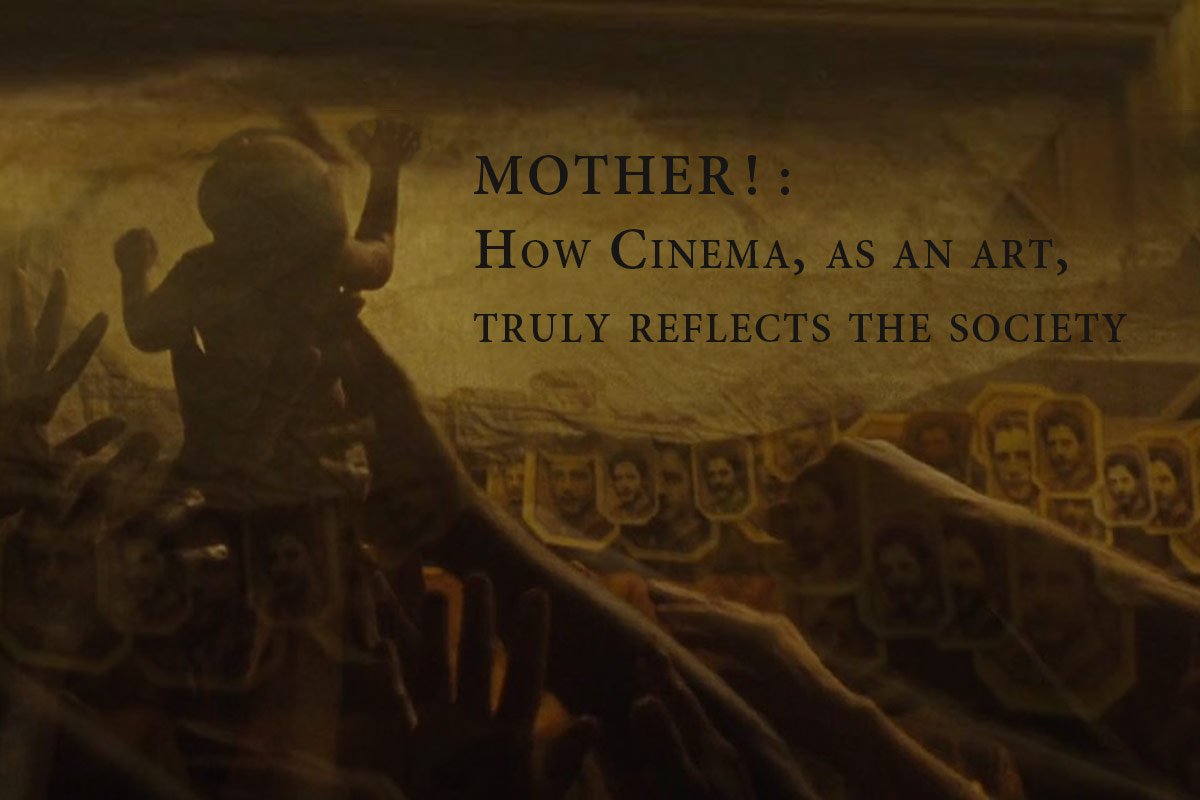Hitting the benchmark of surrealist cinema, Darren Aronofsky’s movie Mother! is among the most bizarre films one must have come across in the last decade. Quite baffling in the beginning, the film sinks deep within. Cinema is indeed a reflection of society but what makes the cinema a piece of art is the way, style, and accuracy with which it reflects the society. Strangely, when confronted with reality, humans find it hard to identify their actions and that’s what makes this film so unique – it makes its viewers witness reality in a way they cannot remember. In this movie review of Mother! we’ll count the critical attacks the movie subtly makes on society and also the way it does so. The Mother movie subtly reflects the critical attacks on our society and symbolizes human nature toward our mother nature.
The Creator and the World
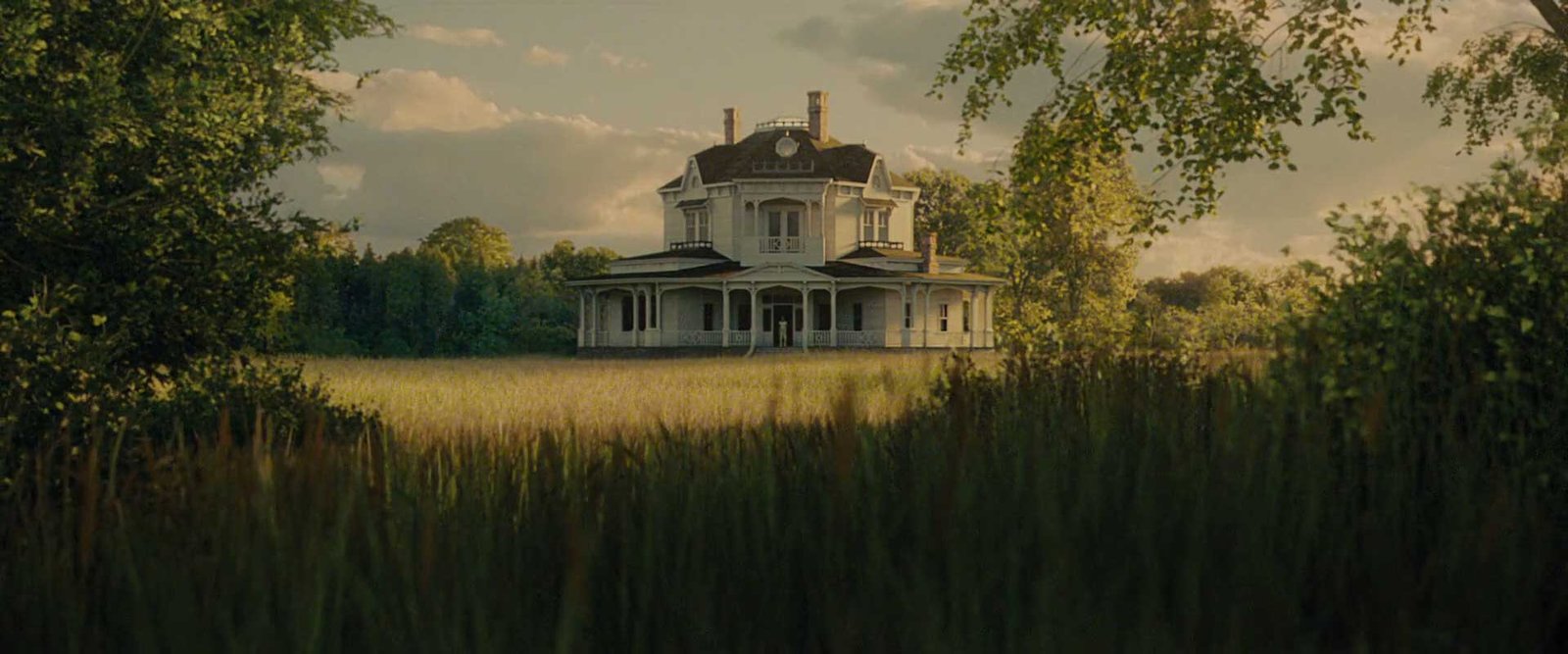
We see the world is being created, the walls get painted, the dirt is removed, sunlight sweeps in and a woman, the Mother, wakes up from sleep looking for her husband. The couple lives in an isolated neighbourhood surrounded by nature on all sides. The husband is a poet who has lost his glory and strives to regain it. They have newly bought the house and it requires some repairs. Later that day, a man drops in whom the husband welcomes in, much against the woman’s choice. The next day, the man’s wife joins them, followed by their two sons. It is not long before herds of people keep invading the house turning it upside down. These are strangers who enter the house, move wherever they wish to, and do whatever they please.
That was just the beginning of the strange occurrences, the worst was yet to come. For once the house was vacated, but a few months later, people began pouring in again. The husband welcomes them, again, even though Mother refuses to. The doors are locked but people always find a way to sneak in. They walk over whichever floor they wish, they are fighting among themselves, they are breaking things, they are rearranging the furniture, some are painting walls, they are singing, rejoicing, they take away the cake the woman made for her husband, and so on. When the mother finally decides to leave the house, she is unable to do so because people are thronging in, they are blocking the doors, and there’s no space for her to move. Amidst all this chaos, she gives birth to a son but even the baby is taken away from her, killed, and fed upon. She is beaten up by the people and finally decides to burn the house.
Embedded Allegory
Mother! is a surrealist movie reminding us of The Discreet Charm of Bourgeoisie or The Exterminating Angel where the audiences find it hard to decipher the meaning of the film. This movie comments on humanity. It projects humans as the destroyers, the ones who repeatedly damage what they think to worship. God created humans, God created the world, and humans have destroyed, abused, and assaulted the creation of God in the name of worship.
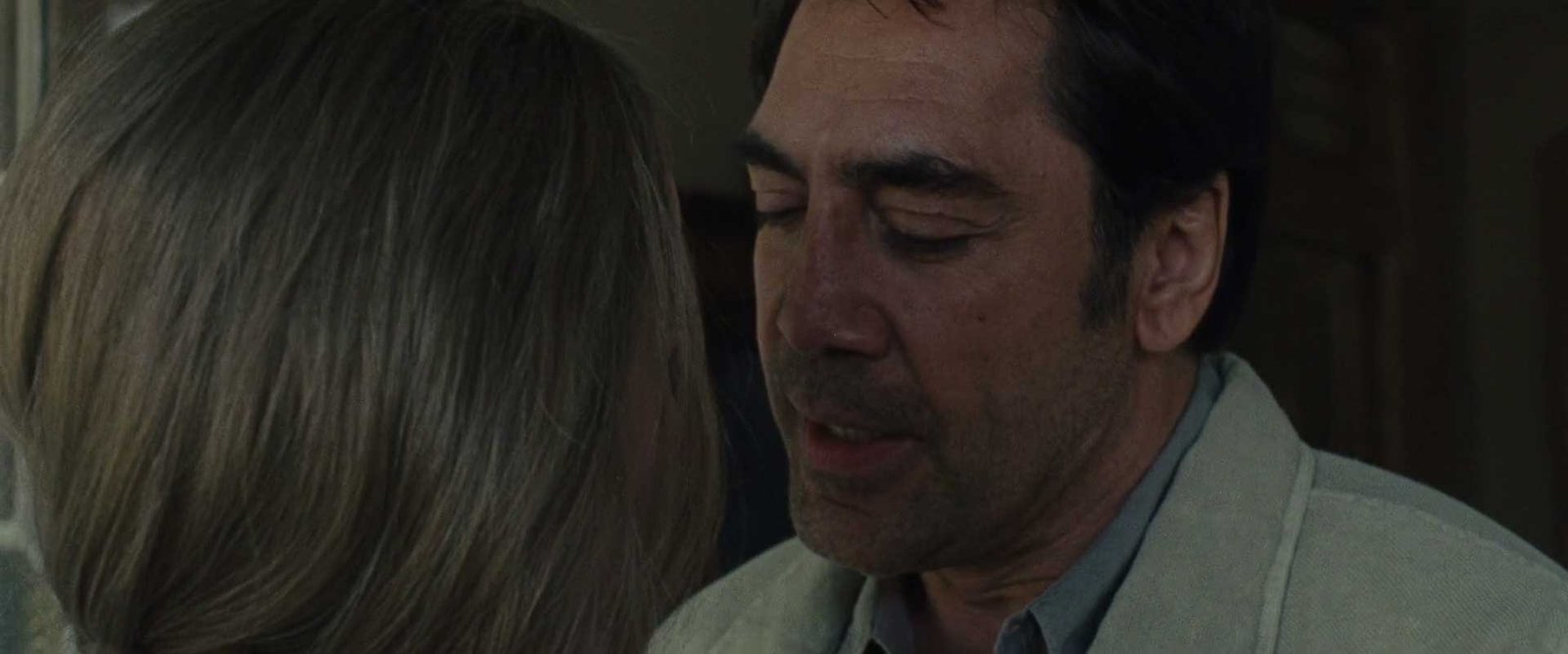
The poet is the metaphor for God. He is shown as the innocent one who wants people to live and bring life to the house. Mother is a very soft-spoken, kind-hearted person and people keep testing her patience, symbolizing how humans have been taking nature for granted and kept extracting from it. He abandons Mother, a metaphor for Mother Earth, whenever she needs him the most. All He wants is to create and be admired for his creation. The yellow-coloured syrup she takes in is the only cure she can get for herself, which doesn’t work for long.
The man and the woman were the first two to enter the house, a metaphor for Adam and Eve, who stubbornly trespassed the boundaries set by Mother. They broke the crystal, like Adam had eaten the apple, and had sex, which was followed by the entry of the two sons. No sooner had the two boys entered than we saw violence and murder, this symbolizes human nature and reflects our society in the movie Mother. People walked in the house like it was their own; when Mother asked Him to make them go, He said, “As if they’ll ever go ever go away”; when Mother asked the drunk old man not to lie down, he chuckled and spread out as if it’s his bed; a group of people began painting one part of the house; a man peaks at Mother when she’s in the bathroom and says, “I was just exploring” – this shows how we live in this planet making it our own, damaging it, remaking it, crossing our limits, extracting from it, healing it as and when we feel like it.
Mother Movie Symbolizes Human Nature
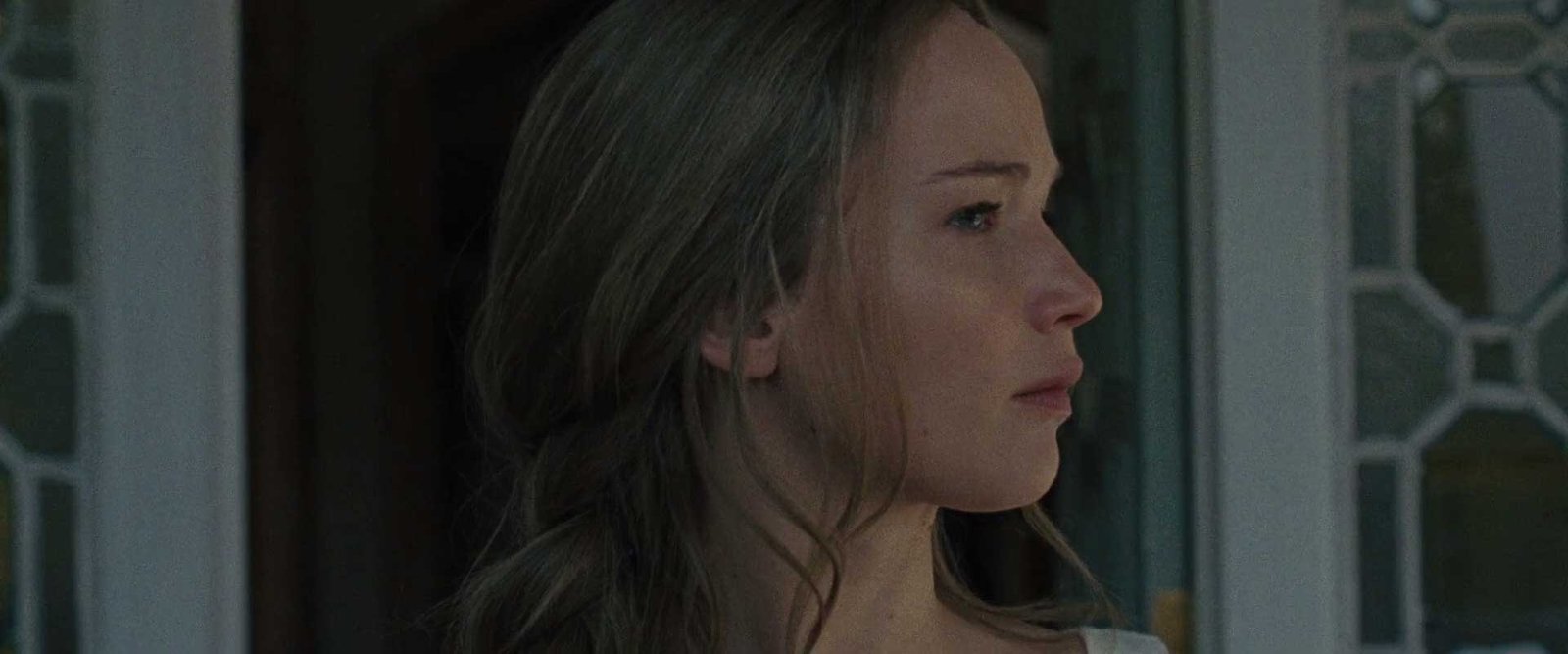
Mother has many of those elements that symbolize, human nature, its activities, and the repercussions on Mother Earth. For instance, herds of people keep barging into the house no matter how much Mother tries to keep them out indicating the increasing population weighing heavily on Earth. They react differently to the rules laid by Mother. When she asked two people chatting on the staircase to go downstairs because that was her private place, they agreed. But when she asked a couple to get out of her bedroom, they didn’t agree at once. And when she asked a woman to not sit on the sink, she refused to follow and kept jumping on and off the sink until it was broken. These identify the types of people who trespass the laws of nature, whether or not they mean any harm.
Furthermore, the poet/God takes the newborn baby away from Mother against her will and shows it to the crowd. The crowd bounces the baby over their heads and rejoices but then suddenly kills the baby and the crowd first cries and then feeds on the baby – showing the nature of human worshipping. When the Mother, now furious at the crowd, screams and attacks them, she is thrown to the floor and beaten up. All this while, God remained a quiet spectator. This movie shows how brutally we treat Mother Earth. This movie Mother also symbolizes human nature and all the violence it reflects in our society. It shows Mother Earth’s incapability to protect its offspring from humans. This film also tells us it is our job to protect mother nature, God has done his part by creating it.
The last and most crucial part, the Mother movie! also shows what Mother Earth can do if she loses her patience – Mother burnt the house symbolizing the natural disasters that occur wiping out hundreds of lives at once. Consequently, after the house is burnt, God takes the heart of the Mother and recreates the world, the house, and all its surroundings symbolizing the fact that Earth had stood all the test of time and had regained all that she has lost.
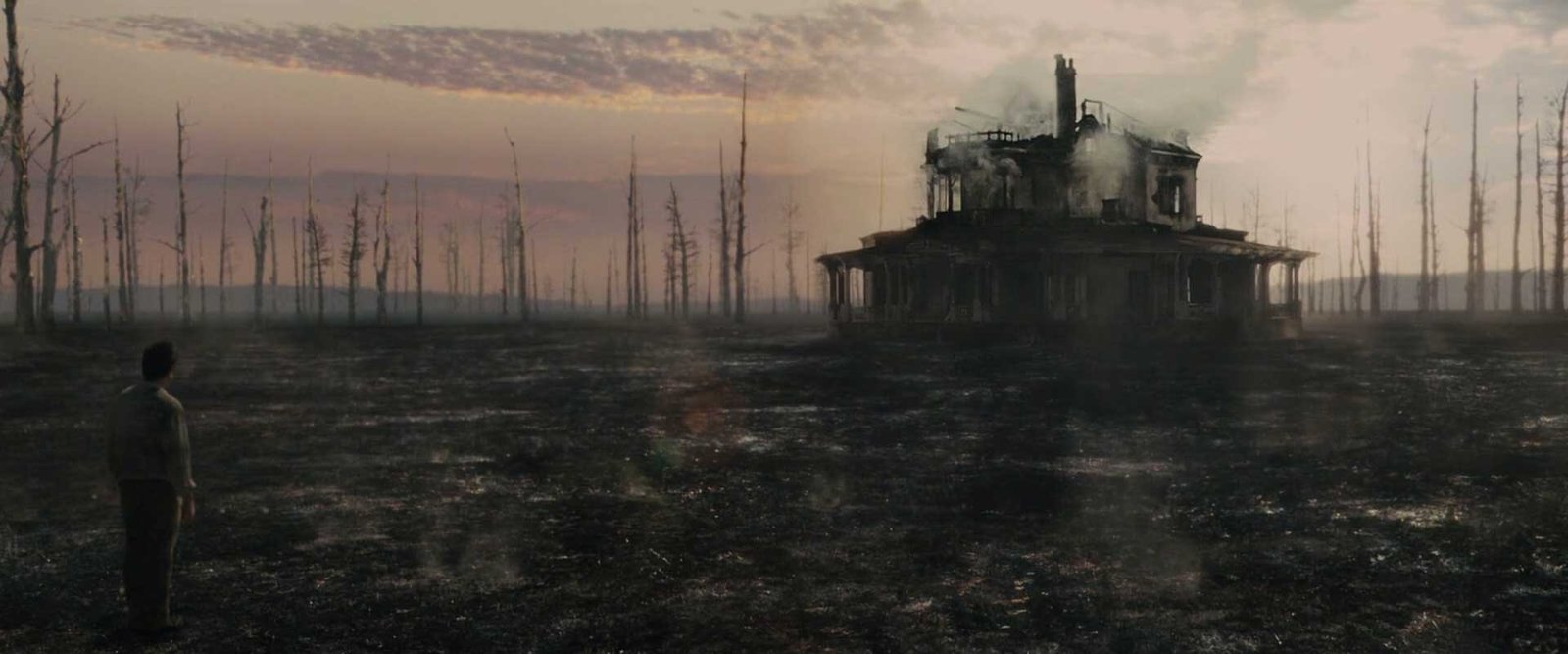
The day begins the same way as it has begun earlier which shows that every time there’s war, crisis, or a disaster, natural or manmade, it might have looked horrific but every time the world breaks, it repairs and repeats because as long as humans exist, disaster would be inevitable.
Mother and Him – capabilities and Choices
The movie Mother! is agnostic in its beliefs regarding God or any supreme power for that matter. It does not deny the existence of God, but it is unsure about God’s capabilities and choices for helping out. This film puts God in the position of a mere spectator who, though, makes his presence mark but does nothing to stop the abuse the Mother is going through. It projects God as someone who would abandon Earth, who is concerned only with the creation of the world, who likes people and wants to be admired, irrespective of all the torment that surrounds them.
Mother! personifies Earth to show us possibly how it would respond had it been capable of directly contacting humans. We, as audiences, sympathize with Mother, we are angry at the poet and somewhat clueless about the expanding crowd creating a ruckus in the house until we realize that while talking about the crowd, we are talking about ourselves and our ways of treating the planet. In all, Mother! is quite perplexing in the beginning, but through its labyrinthine ways, it indeed makes strong statements and compels the audiences to give it a thought, though shallow, long after the film is over.
You never loved me. You just loved how much I loved you. I gave you everything. You gave it all away.

